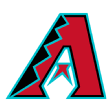Names you need to know from Day 2 of the MLB draft
You never know what gems will pop up from the second day of the MLB draft. All-Star rosters are littered with Cy Young winners like Corey Kluber (fourth round) and Jacob deGrom (ninth round), who both pitched at Stetson, an MVP winner in Mookie Betts (fifth round) or an MVP candidate like Paul Goldschmidt (eighth round) or Cody Bellinger (fourth round).
Here are some names to watch from the second day of the 2019 draft, which covers Rounds 3 through 10:
 Tyler Callihan, Reds (2B, Providence HS, Jacksonville, Fla.)
Tyler Callihan, Reds (2B, Providence HS, Jacksonville, Fla.)
Pick: Round 3, 85th overall
No. 40 on Keith Law’s big board, Callihan draws rave reviews for his hit potential but lacks a clear position. The Reds announced him as a second baseman, although he has tried catching and Keith believed it would be worthwhile to try him behind the plate.
 Matthew Allan, Mets (RHP, Seminole HS, Sanford, Fla.)
Matthew Allan, Mets (RHP, Seminole HS, Sanford, Fla.)
Pick: Round 3, 89th overall
Allan clearly fell because of perceived signability issues as Keith had him as the top prep pitcher on his big board (No. 11 overall) and MLB.com had Allan No. 13 on its list. Allan is 6-foot-3, 210 pounds, and he sits 92-95 and touches 97 with his fastball. His curveball and changeup also project as plus offerings. Allan’s draft slot figure is $668,000, so the Mets will have to go way over that amount to keep from attending Florida.
From the first pick to the late-round steals, keep up with the players your team just made a part of its future plans.
![]() Law: What I liked and didn’t for all 30 teams
Law: What I liked and didn’t for all 30 teams
Analysis of every first-round pick
Complete MLB draft coverage
 Jacob Wallace, Rockies (RHP, UConn)
Jacob Wallace, Rockies (RHP, UConn)
Pick: Round 3, 100th overall
The UConn closer lights up the radar gun with a fastball that touches 98, and he blew by hitters this year with 68 strikeouts and a .140 average allowed in 42 innings. His most impressive moment came when he struck out all seven Oklahoma State batters he faced to keep UConn alive in an NCAA regional matchup last weekend.
He’s your prototypical fastball/slider power reliever and could be one of the first players from this draft to reach the majors. If that happens, he can join UConn pitcher Scott Oberg in the Colorado bullpen.
 Ryan Pepiot, Dodgers (RHP, Butler)
Ryan Pepiot, Dodgers (RHP, Butler)
Pick: Round 3, 102nd overall
The Dodgers went all-in on performance by college players, taking Tulane third baseman Kody Hoese (an older college player who ranked among Division I leaders in home runs) at No. 25 and North Carolina infielder/outfielder Michael Busch (No. 16 on Keith’s board) with the 31st pick Monday and then Pepiot on Tuesday. He fanned 126 in 78 innings for the Bulldogs thanks to a high spin rate and power curveball, pushing him up to No. 33 on Keith’s board, and although he’ll have to improve his control (44 walks), he looks like somebody who could always fall back to the bullpen with a strong two-pitch repertoire.
 Glenallen Hill Jr., Diamondbacks (SS, Santa Cruz (Calif.) HS)
Glenallen Hill Jr., Diamondbacks (SS, Santa Cruz (Calif.) HS)
Pick: Round 4, 122nd overall
The son of the former big league slugger is a different player from his dad: He’s faster, smaller and a switch-hitter, although he does project to have some power despite his 5-9 frame. He is expected to move to the outfield as a pro. The Diamondbacks will also have to buy him out of an Arizona State commitment. He does have one similarity to his dad: There are concerns that he has too much swing-and-miss in his game.
 Graeme Stinson, Rays (LHP, Duke)
Graeme Stinson, Rays (LHP, Duke)
Pick: Round 4, 128th overall
Stinson began the season not only as a potential first-round pick but as one of the top college starting pitching prospects, even though he had pitched in relief in 2018. He made just five starts, however, shut down after a hamstring injury, and didn’t look good before the injury. If healthy, he has a mid-90s fastball and one of the best sliders in the draft. Given his lack of a track record as a starter and his missed time this season, he might end up a reliever.
 Noah Song, Red Sox (RHP, Navy)
Noah Song, Red Sox (RHP, Navy)
Pick: Round 4, 137th overall
Song is currently required to fulfill a five-year military commitment — he is scheduled to begin training as a naval flight officer in November — before the Navy will let him join a professional organization (he can petition after two years to serve as a reservist).
Mitch Harris and Oliver Drake did reach the majors out of the Naval Academy, although it took Harris seven years after his draft year to get there and Drake left school after two years and went straight to the minors after getting drafted. Song, however, is a much better prospect than those two as he hits 96 with his fastball, maintains velocity deep into his starts, and had a dominant season in the Patriot League with 161 strikeouts in 94 innings and a 1.41 ERA.
 Tanner Morris, Blue Jays (SS, Virginia)
Tanner Morris, Blue Jays (SS, Virginia)
Pick: Round 5, 147th overall
A draft-eligible sophomore, Morris hit .345/.452/.507 in the tough ACC with more walks than strikeouts. He didn’t hit many home runs (5), but his 21 doubles in 56 games suggests there could be more to come from his 6-2 frame — plus, Virginia’s home park is a tough place to hit home runs. He’s not a burner, so he might switch to second in the pros.
 Will Holland, Twins (SS, Auburn)
Will Holland, Twins (SS, Auburn)
Pick: Round 5, 149th overall
Another college shortstop from a power conference, Holland is different from Morris in that he’s a true shortstop but had a disappointing season at the plate after entering the year as a potential first-round pick. He hit .248 for the Tigers with 57 strikeouts in 214 at-bats, so he’ll need to overhaul his approach and swing to tap into his power potential (he did hit nine home runs for Auburn).